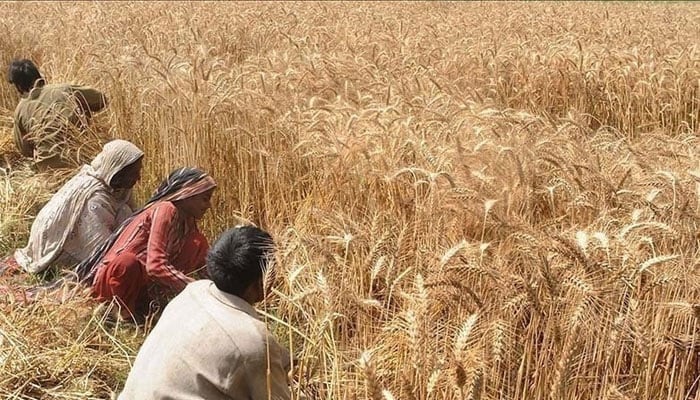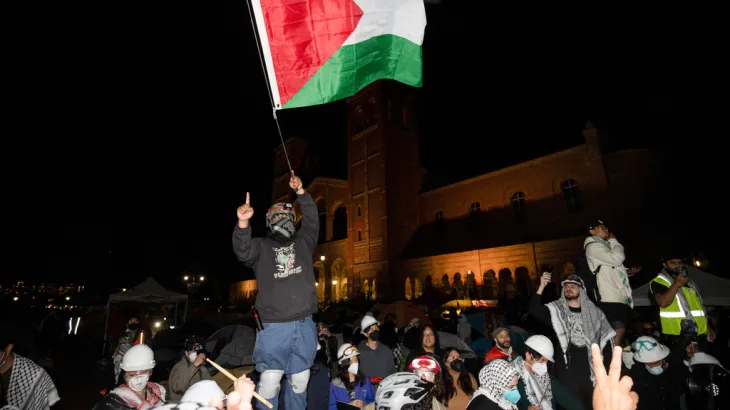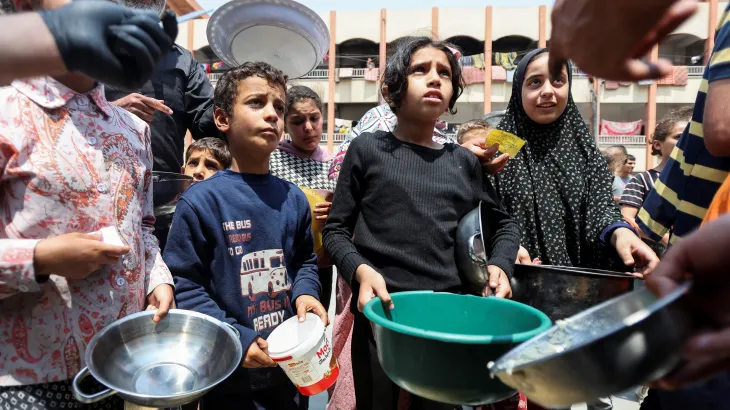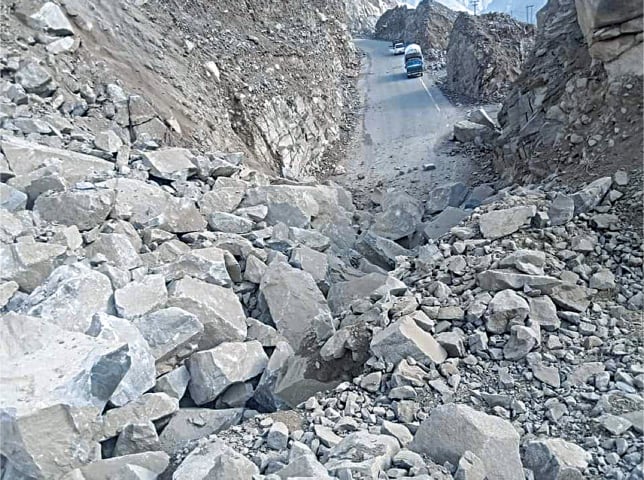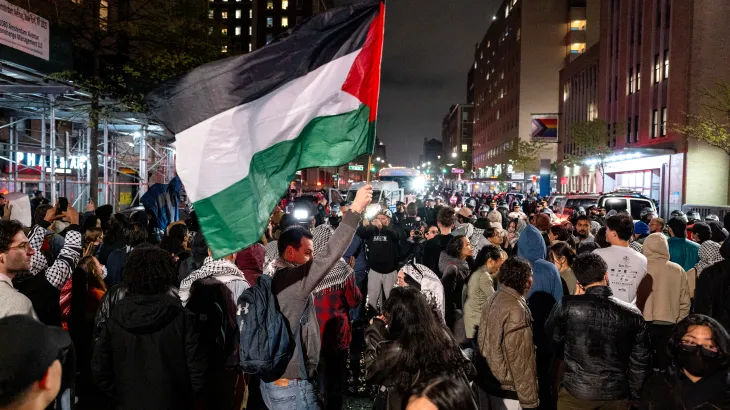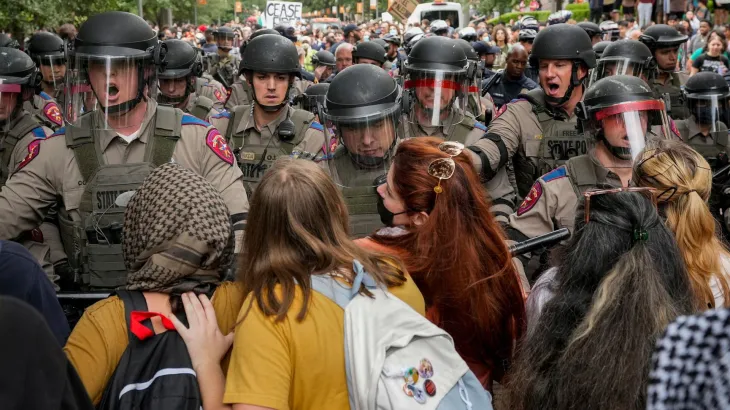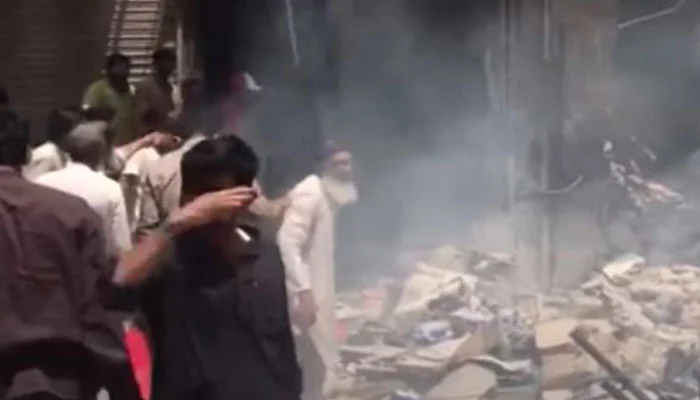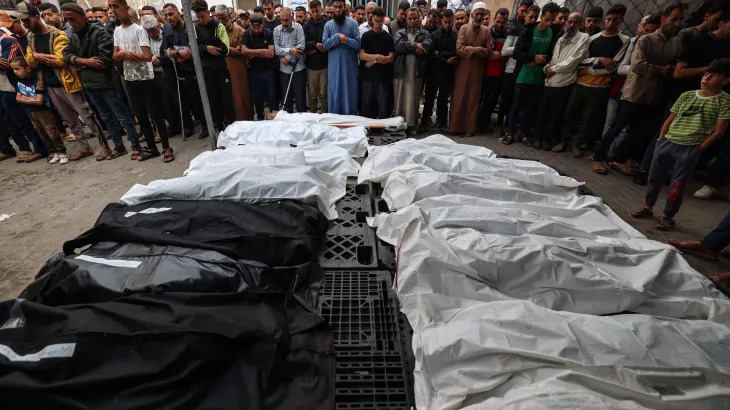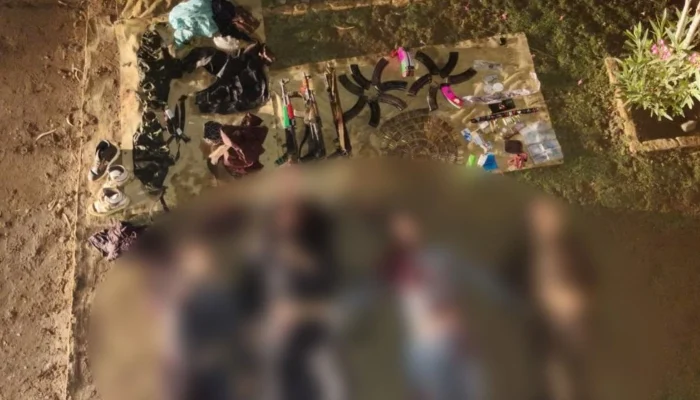Police in the United States have clashed with students at a university in the city of Austin, Texas, and arrested dozens as they dismantled an encampment set up to protest Israel’s war on Gaza. The arrests at the University of Texas at Austin (UT Austin) on Monday came as Columbia University in New York City also began suspending students after they defied an ultimatum to disperse. The protesters are calling their universities to cut ties with Israel, which some experts at the United Nations say is committing genocide against Palestinians in Gaza. Israeli forces have killed at least 34,488 Palestinians since October 7, when fighters from Hamas launched unprecedented attacks inside southern Israel, killing 1,139 people and taking dozens captive. The protests have upended university campuses across the US, with the number of arrests approaching 1,000 as the final days of classes wrap up. At UT Austin, an attorney said at least 40 demonstrators had been arrested on Monday on charges of trespassing and disorderly conduct, some of them by officers in riot gear who encircled about 100 sitting protesters, dragging or carrying them out one by one amid screams. Another group of demonstrators trapped police and a van full of detainees between buildings, creating a mass of bodies pushing and shoving and prompting the officers to use pepper spray and flash-bang devices to clear the crowd. The confrontation was an escalation on the 53,000-student campus in the state’s capital, where more than 50 protestors were arrested last week. The university late on Monday issued a statement saying that many of Monday’s protesters were not affiliated with the school and that encampments are prohibited on campus. The school also alleged that some demonstrators were “physically and verbally combative” with university staff, prompting officials to call law enforcement. Al Jazeera’s Heidi Zhou-Castro, reporting from UT Austin, described the clashes as an “extraordinary turn of events”. “What began as a silent protest on Monday morning by faculty in opposition to the way UT Austin administration has been responding to these protests has now erupted into conflict,” she said. “The 43 arrested were part of the encampment that began this afternoon, with people setting up tents and forming a circle around it, refusing to disperse. We saw police descend on those protesters just moments after the tents went up. The police encircled them, began arresting them one by one, picking them up off the ground and dragging them away from the line.” As soon as police cleared the encampment, other students began rallying on the area, said Zhou-Castro. Some of them were holding umbrellas to protect against pepper spray. Police, too, were out in force, blocking the path to the area where the encampment had stood. One student, who identified himself as Hadi, condemned the university’s attempts to silence the protesters and said they were determined to continue, “What trumps our fear is our love for Palestine, and our love for liberation, and our refusal to accept subjugation and censorship from an oppressive institution,” he said. Suspensions at Columbia The Texas protest and others grew out of Columbia’s early demonstrations that have continued. On Monday, student activists on the school’s Manhattan campus defied a 2pm deadline to leave an encampment of around 120 tents. If they left by the deadline and signed a form committing to abide by university policies through June 2025, officials said they could finish the semester in good standing. If not, they would be suspended, pending further investigation. Instead, student groups were defiant, pledging to continue their activism on behalf of the Palestinian civilians harmed by Israel’s war in Gaza. “WE WILL NOT STOP, WE WILL NOT REST!!” one group, Columbia Students for Justice in Palestine, wrote on social media. “We will continue until our demands are met. We will not be intimidated.” Hundreds of protesters remained on campus, marching around the quad and weaving around piles of temporary flooring and green carpeting meant for graduation ceremonies that are supposed to begin next week. While the university did not call police to remove the demonstrators, school spokesperson Ben Chang said suspensions had started. He said that while the university appreciated the free speech rights of students, the encampment was a “noisy distraction” that was interfering with teaching and preparation for for final exams. The university said it will offer an alternative venue for the protests after exams and graduation. Earlier, the university administration announced that its negotiations with student protesters have fallen through, and said “the current unauthorised encampment and disruption on Columbia University’s campus is creating an unwelcoming environment for members of our community”. Freedom of speech The Columbia and Texas demonstrations are just two of several high-profile university protests unfolding across the country, including at Yale, George Washington University and the University of California, Los Angeles, prompting questions about academic freedom and free speech. On April 18, New York police arrested an estimated 108 students protesting on Columbia’s campus, including Isra Hirsi, the daughter of US House Representative Ilhan Omar, at the request of school administrators. School administrators have been under pressure to crack down on alleged incidents of anti-Semitism on their campuses, though the student organisers behind the protests have denounced those allegations as false and misleading. Al Jazeera correspondent Kristen Saloomey, reporting from Yale University in New Haven, Connecticut, said that the encampment there had been largely peaceful, with no indication of violent rhetoric or actions. “The university is saying that the students are violating policies as to who can set up on campus, and what can be done on campus,” Saloomey said, “although what we’ve seen here today has been pretty quiet and pretty calm, and they aren’t blocking any of the buildings or any of the entrances”. Observing the George Washington University campus in Washington, DC, Al Jazeera correspondent Shihab Rattansi said that administrators appear to be behind much of the calls for police intervention in the protests. “It’s the university administrators – who are supposed to be wanting freedom of speech and thought and critical engagement with the issues of the day









